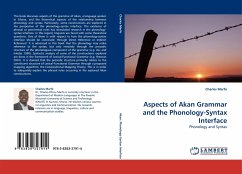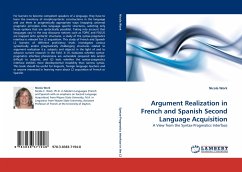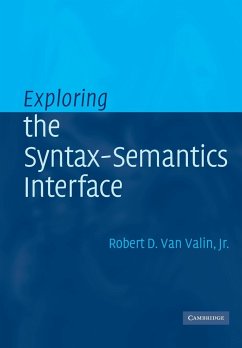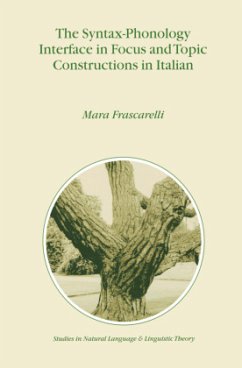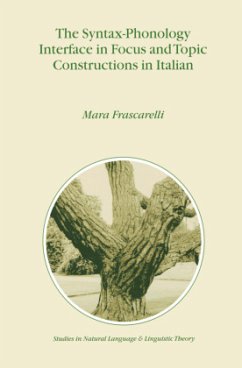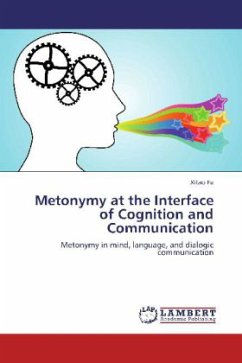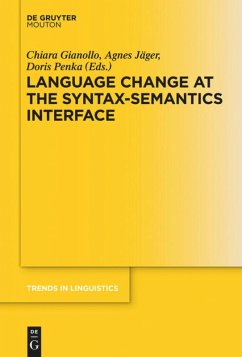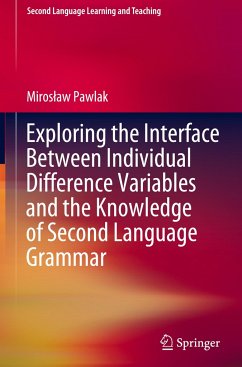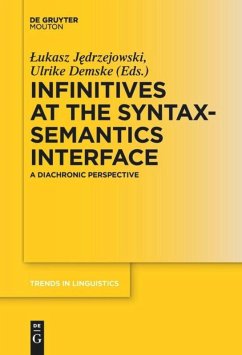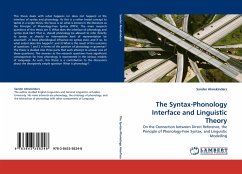
The Syntax-Phonology Interface and Linguistic Theory
On the Connection between Direct Reference, the Principle of Phonology-Free Syntax, and Linguistic Modelling
Versandkostenfrei!
Versandfertig in 6-10 Tagen
39,99 €
inkl. MwSt.

PAYBACK Punkte
20 °P sammeln!
This thesis deals with what happens (or does not happen) at the interface of syntax and phonology. As this is a rather broad concept to tackle in a single thesis, the focus is on what is known in the literature as the Principle of Phonology-Free Syntax (PPFS). The main research questions of this thesis are 1) What does the interface of phonology and syntax look like? That is, should phonology be allowed to refer directly to syntax, or should an intermediate level of representation be assumed?; 2) Does phonological influence on syntax exist, and if so, to what extent does this happen?; and 3) W...
This thesis deals with what happens (or does not happen) at the interface of syntax and phonology. As this is a rather broad concept to tackle in a single thesis, the focus is on what is known in the literature as the Principle of Phonology-Free Syntax (PPFS). The main research questions of this thesis are 1) What does the interface of phonology and syntax look like? That is, should phonology be allowed to refer directly to syntax, or should an intermediate level of representation be assumed?; 2) Does phonological influence on syntax exist, and if so, to what extent does this happen?; and 3) What is the result of the outcome of questions 1 and 2 in terms of the position of phonology in grammar? The thesis is divided into three parts that each attempt to answer one of these questions. The answers to the research questions have significant consequences for how phonology is represented in the various models of Language. As such, this thesis is a contribution to the discussion about the deceptively simple question 'What is phonology?'.



